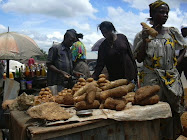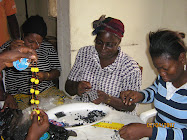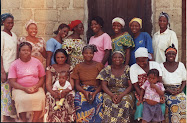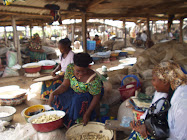| Weitten by From Jerry Uwah, Washington DC | Sunday, 25 April 2010 00:12 |
920 million to remain poor || 1.2m more infant deaths may occur || Poverty in Nigeria and other sub-Saharan African countries would drop by a half to 21 per cent from its current level of 42 per cent by 2015, the World Bank and the International Monetary Fund (IMF) have said.
The federal government estimates put poverty rate in Nigeria at 55 per cent but independent observers insist that 70 per cent of Nigerians live below the poverty line.
The latest Global Monitoring Report 2010 on the Millennium Development Goals (MDGs) released at the World Bank/IMF Spring Meetings in Washington D.C., yesterday, said the estimates are largely based on the strong progress in some regions before the global financial crisis.
However, the report said that as a result of the crisis, 53 million more people will remain in extreme poverty by 2015 than it otherwise would have been. Overall, the report projects that the number of extreme poor could total around920 million five years from now, marking a decline from the 1.8 billion people living in extreme poverty in 1990.
The MDGs - a set of internationally agreed targets adopted in 2000 - measures the extent to which people across the world have access to clean water, education, food, healthcare and other basic needs.
However, the critical MDG target of reducing by half the number of people suffering from hunger from 1990 to 2015 is very unlikely to be met, as over a billion people struggle to meet basic food needs, the report says.
Both the 2008 food price crisis and the financial crisis that hit in the same year have exacerbated hunger in the developing world.
Moreover, the report notes that malnutrition among children has a multiplier effect, accounting for more than a third of the disease burden of children under age five. According to the report, for the period from 2009 to the end of 2015, an estimated 1.2 million additional deaths may occur among children under five due to crisis-related causes.
Noting that these effects might have been more serious, the report stated that pre-crisis policy reforms by developing countries, as well as strong actions by countries and by international financial institutions helped avert a much worse crisis. "Governments kept social safety nets intact (at least through 2009), and massive efforts by the international community to limit economic contraction and contagion have paid off.
"Spurred by recent strong performance in emerging economies and the recovery of global trade, Gross Domestic Product (GDP) growth in developing countries is projected to accelerate to 6.3 per cent in 2010, up from 2.4 per cent in 2009, according to new IMF projections contained in the report.
Global output, meanwhile, is projected to increase to 4.2 per cent this year, reversing a decline of 0.6 per cent in 2009.
"The international community cannot afford to be complacent, since the recovery remains fragile, with long-term implications for many of the goals, including those related to health and education," cautioned Justin Yifu Lin, World Bank chief economist.
Before the crisis hit, progress on the individual MDGs was already mixed. The proportion of children under five who are underweight declined from 33 per cent in developing countries in 1990 to 26 per cent in 2006, a much slower pace than is needed to halve it by 2015. Improvement on this target has been slowest in sub-Saharan Africa and South Asia, where as many as 35 per cent of children under five suffer from stunting.
"The crisis is hitting everyone. But for poor countries, the impact will last long after the global economy has recovered," said Lin. "Furthermore, if recovery is not sustained, continued weak external conditions could lead to widespread domestic policy failure. History tells us that the consequences for human development will be disastrous," he warned.







